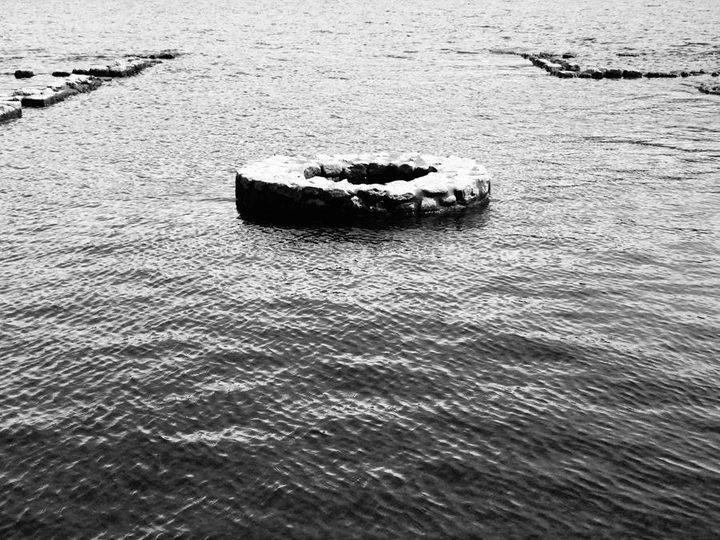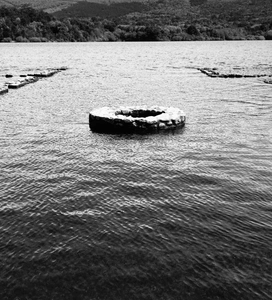Ecologies of Scarcity

Andreia Garcia is an architect, curator, researcher, editor and professor, with a PhD from Lisbon School of Architecture.
She was a professor at the School of Architecture of the University of Minho, in Guimarães, and at the Architectural Association, in London. She is Vice President of the Faculty of Engineering of the University of Beira Interior. As Assistant Professor at UBI, Andreia teaches Architectural Design at the 5th year of the MA in Architecture, and focus on this rural region of Portugal which is deeply affected by water scarcity and highly intensive agriculture, fires and desertification - underlining the importance of territorial policies and on the recovery of the ecological corridors, through socio-economic dynamics of co-existence and a more sustainable future.
She is the founder and curator of Galeria de Arquitectura, in Porto, an independent space dedicated to reflection and debate on Architecture, City and Territory.
She is the founder of the Architectural Affairs studio, and her professional work has been distinguished several times, i.e. nominated for the Mies van der Rohe Award'22.
She is the Director of the Art(e)Facts Knowledge Biennial, in Fundão, which promotes the co-creation between contemporary artists, architects and designers with artisans from the Beira Interior region, while proposing knowledge alliances between humans and non-humans in order to save the future.
In 2023, Andreia was the curator of the Portuguese representation at the 18th International Architecture Exhibition - La Biennale di Venezia 2023, Fertile Futures. A proposal that commissions young architects, in collaboration with specialists from other fields of knowledge, to present propositional models for a more sustainable, healthy and equitable tomorrow, in non-hierarchical cooperation between disciplines, generations and species, defending the pertinence of Architecture’s contribution to the redesign of a decarbonised, decolonised and collaborative tomorrow.
Human settlement is growing and increasingly polarized, as the inhabitants of the countryside continue to move to cities, accelerating the depopulation of rural areas, that become abandoned, forgotten and, thus, “expectant”, rapidly occupied by large extractive investments, agro-businesses or “green” investments in (hydro)electricity production.
In a constantly changing world, the way in which interests and powers move is also contributing to deregulating the distribution, preservation and consumption of water, leading to permanent and complex conflicts, based on the financial valuation or the symbolic meanings, on the sense of belonging or the impacts on ecosystems.
Between scarcity and over abundance, water is the natural element that metaphorically, emotionally, and objectively represents the political, social, economic and technological issues of our time, on any scale, be it local or global.
Expanding from the Fertile Futures, the project I curated for the Portuguese Representation at La Biennale di Venezia, Ecologies of Scarcity wants to learn from other hydrogeographies and contexts, where the unequal use of land is leading to the increasingly unequal access to water.
How can we build on co-existence, cooperation and consensus?
How can we respond to the ecologies of scarcity?
Using different time-space research methodologies, based on co-learning with other fields of knowledge, on participatory actions with locals and on immersion in the territory, the aim is to study and to map the (in)compatibilities and need to coexistence between different more-than-human bodies and systems of water, in various geopolitical contexts of the European rural world (sites to be defined), analyzing their scales and dynamics, the political and economic interests, the social impacts and the existing conflicts, and, thus, the common challenges for the future.
